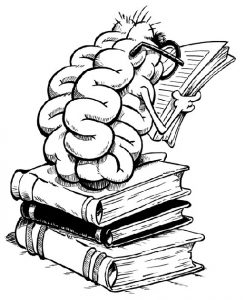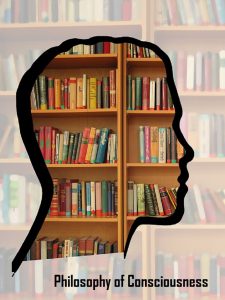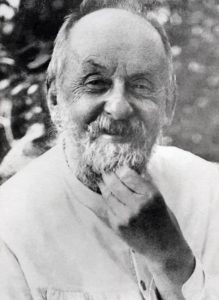
I want to pay your attention that there is a slight difference between my terms and the modern scientific ones. From my point of view, it allows us to see cognitive process in a more realistic light …
The MIND is a set of «thinking» abilities of the Brain (a set of Brain Powers), which enable the Body and the Personality of a Human Being to effectively process information during cognition, i.e.:
- the maximum amount of data processed;
- the maximum data processing speed;
- a variety of processed data;
- a variety of the methods of information input for further processing;
- a variety of the methods of information output after it has been processed;
- etc.
This set of abilities we call as “capacities of thinking”. People who are able to effectively think, have always been called “thinkers”.
MIND is the objective characteristic (a set of parameters) of an object, which can be accurately measured, using the appropriate techniques.
Many objects are able to independently systematize (generalize, comprehend) information about the outside world during cognition. Such information (systematized knowledge) is called «consciousness» of objects, and objects themselves are called «conscious».
CONSCIOUSNESS is the objective characteristic (parameter) of an object. Consciousness can be accurately measured, using the appropriate techniques.
But there are objects that we call «creatures». They are able both to systematize information about the outside World and to use their «experience and knowledge» (their consciousness) in their activities.
REASON is the integral ability of Beings to use the accumulated «experience and knowledge» in their activities; it is this ability that distinguishes them from objects which are simply conscious. If the Beings have “reason”, they will possess abilities to analyze, abstract, generalize, logically think …
That is why «creatures» at all times were called “reasonable“, that is experienced, knowledgeable. And their activity was also considered to be “reasonable“.
INTELLIGENCE is a property of an object that characterizes its ability to cognize the World (in the broadest sense of this word) by a heuristic method based on the object’s:
- MIND; «thinking» abilities;
- CONSCIOUSNESS; the volume of systematized information about the world (the volume of accumulated experience and knowledge):
- REASON; ability to fully or partly use consciousness in certain activities.
INTELLECTUAL is the characteristic of a Being with excellent «cogitative» («thinking») abilities, great knowledge and personal experience, which ultimately allows him to take more correct decisions in his activity.
But intellect can also be expressed mathematically as a variable that changes in time and depends on three main variable functions:
Intelligence (t) = f(«thinking» abilities, t) * f(The volume of systematized information or the volume of Consciousness, t) * f(The amount of consciousness used for activities or Reason, t)
I(t) = f(TA, t) * f(C, t) * f(M, t)
I = Intelligence
TA = «Thinking» Abilities
C = Volume of Consciousness or Volume of Systematized Information
M = The Мind or a part of Consciousness used for performing one’s activity
t = time
Thus, «intelligence» is the variable in time objective characteristic (parameter) of an object; it can be accurately measured, using the appropriate techniques.
P.S.
Of course, everything I’ve mentioned above is a very simplified model for defining “intelligence” of any Being. But this model really works. Its effectiveness differs it from all the rest models existing nowadays.


